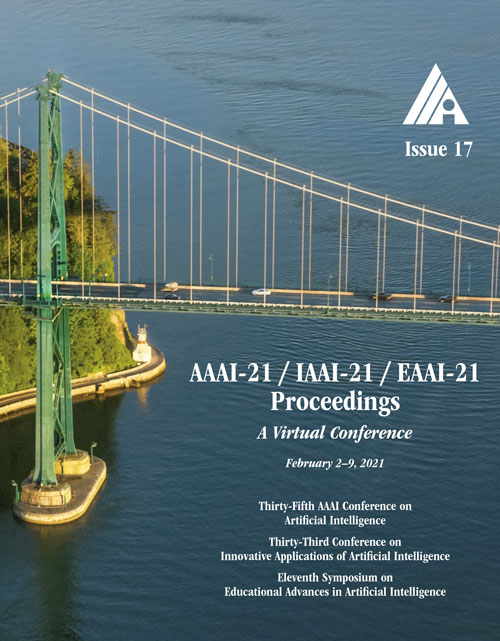JEL: Applying End-to-End Neural Entity Linking in JPMorgan Chase
DOI:
https://doi.org/10.1609/aaai.v35i17.17796Keywords:
Entity Linking, Entity Embedding, Knowledge Graph, Deep & Wide LearningAbstract
Knowledge Graphs have emerged as a compelling abstraction for capturing key relationship among the entities of interest to enterprises and for integrating data from heterogeneous sources. JPMorgan Chase (JPMC) is leading this trend by leveraging knowledge graphs across the organization for multiple mission critical applications such as risk assessment, fraud detection, investment advice, etc. A core problem in leveraging a knowledge graph is to link mentions (e.g., company names) that are encountered in textual sources to entities in the knowledge graph. Although several techniques exist for entity linking, they are tuned for entities that exist in Wikipedia, and fail to generalize for the entities that are of interest to an enterprise. In this paper, we propose a novel end-to-end neural entity linking model (JEL) that uses minimal context information and a margin loss to generate entity embeddings, and a Wide & Deep Learning model to match character and semantic information respectively. We show that JEL achieves the state-of-the-art performance to link mentions of company names in financial news with entities in our knowledge graph. We report on our efforts to deploy this model in the company-wide system to generate alerts in response to financial news. The methodology used for JEL is directly applicable and usable by other enterprises who need entity linking solutions for data that are unique to their respective situations.Downloads
Published
2021-05-18
How to Cite
Ding, W., Chaudhri, V. K., Chittar, N., & Konakanchi, K. (2021). JEL: Applying End-to-End Neural Entity Linking in JPMorgan Chase. Proceedings of the AAAI Conference on Artificial Intelligence, 35(17), 15301-15308. https://doi.org/10.1609/aaai.v35i17.17796
Issue
Section
IAAI Technical Track on Emerging Applications of AI

